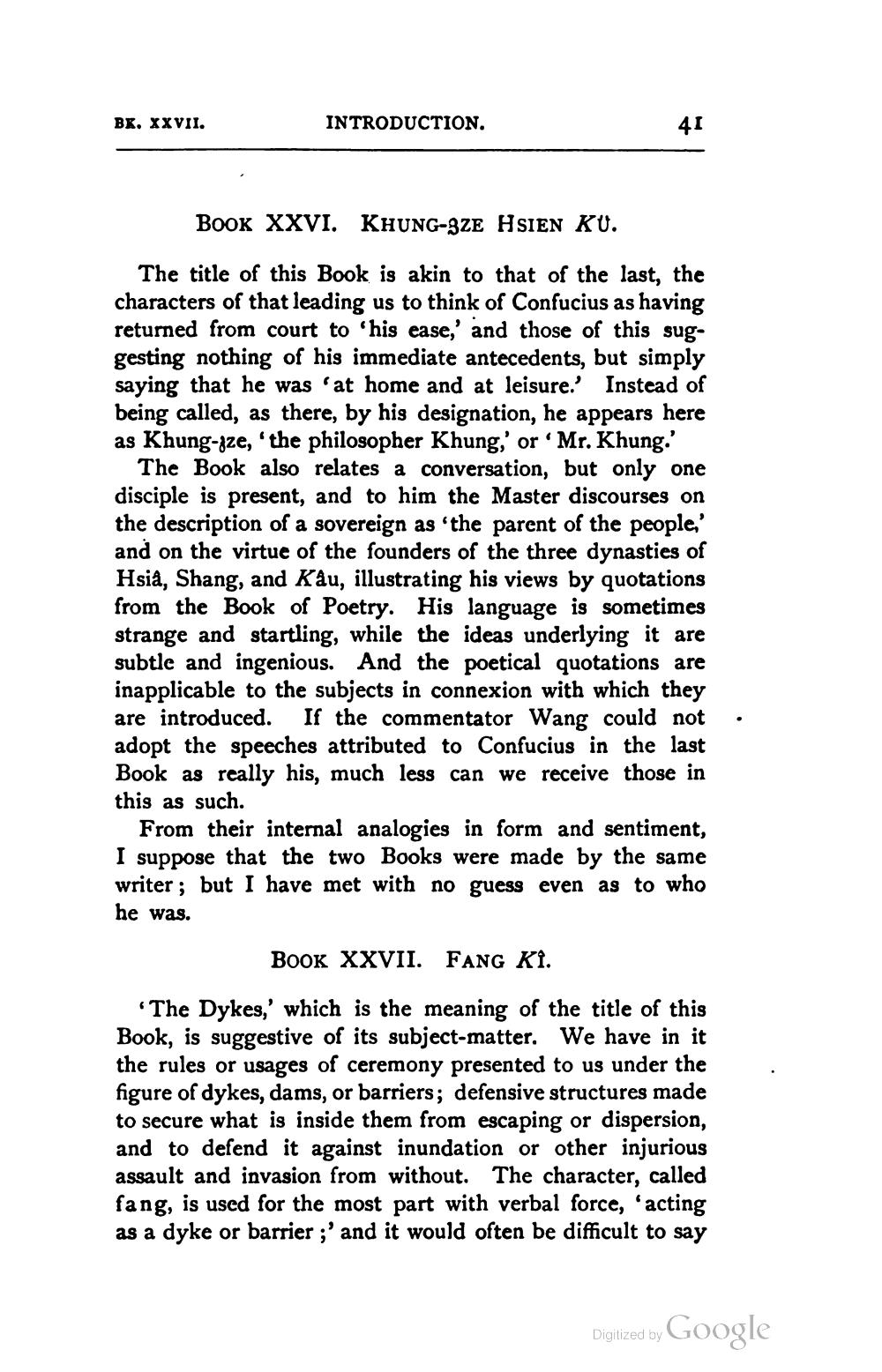________________
BK, XXVII.
INTRODUCTION.
Book XXVI. KHUNG-BZE Hsien KU.
The title of this Book is akin to that of the last, the characters of that leading us to think of Confucius as having returned from court to ‘his ease,' and those of this suggesting nothing of his immediate antecedents, but simply saying that he was 'at home and at leisure. Instead of being called, as there, by his designation, he appears here as Khung-gze, 'the philosopher Khung,' or 'Mr. Khung.'
The Book also relates a conversation, but only one disciple is present, and to him the Master discourses on the description of a sovereign as 'the parent of the people,' and on the virtue of the founders of the three dynasties of Hsia, Shang, and Kau, illustrating his views by quotations from the Book of Poetry. His language is sometimes strange and startling, while the ideas underlying it are subtle and ingenious. And the poetical quotations are inapplicable to the subjects in connexion with which they are introduced. If the commentator Wang could not adopt the speeches attributed to Confucius in the last Book as really his, much less can we receive those in this as such.
From their internal analogies in form and sentiment, I suppose that the two Books were made by the same writer ; but I have met with no guess even as to who he was.
BOOK XXVII. FANG KI.
The Dykes,' which is the meaning of the title of this Book, is suggestive of its subject-matter. We have in it the rules or usages of ceremony presented to us under the figure of dykes, dams, or barriers; defensive structures made to secure what is inside them from escaping or dispersion, and to defend it against inundation or other injurious assault and invasion from without. The character, called fang, is used for the most part with verbal force, 'acting as a dyke or barrier ;' and it would often be difficult to say
Digitized by Google




